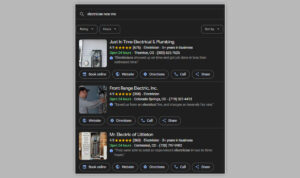Affiliate marketing can be a great way to earn money online, but it’s important to use your affiliate links the right way.
Spamming people with your links can hurt your reputation and even get you in trouble legally.
In this article, we’ll explore how to use affiliate links effectively without annoying your audience or breaking any rules.
-
Table of Contents
Key Takeaways
Understanding the Basics of Affiliate Links
What Are Affiliate Links?
How Do Affiliate Links Work?
Common Misconceptions About Affiliate Links
The Dangers of Spamming with Affiliate Links
Why Spamming Hurts Your Reputation
Legal Consequences of Spamming
How to Avoid Spamming Tactics
Effective Strategies for Promoting Affiliate Links
Creating Engaging Content
Leveraging Social Media
Utilizing Email Marketing
The Importance of Link Cloaking
What is Link Cloaking?
Benefits of Link Cloaking
Tools for Link Cloaking
Monitoring Your Affiliate Links
Building Trust with Your Audience
Transparency in Affiliate Marketing
Providing Value to Your Audience
Engaging with Your Community
Collaborating with Influencers
Finding the Right Influencers
Measuring the Impact of Influencer Collaborations
Offering Incentives to Boost Clicks
Creating a Long-Term Affiliate Marketing Plan
Setting Realistic Goals
Continuous Learning and Improvement
Avoiding Common Affiliate Marketing Pitfalls
Overloading Content with your affiliate Links
Ignoring SEO Best Practices
Neglecting Audience Feedback
Legal and Ethical Considerations in Affiliate Marketing
Understanding FTC Guidelines
Disclosing Affiliate Relationships
Maintaining Ethical Standards
Avoiding Direct Link Sharing
Prohibited Content
Email Marketing Compliance
Monitoring and Compliance
Conclusion
Frequently Asked Questions
What are affiliate links?
How do affiliate links work?
Why is spamming with affiliate links bad?
What is link cloaking?
How can I avoid spamming tactics?
What are the benefits of link cloaking?
How can I track my affiliate links?
Why is transparency important in affiliate marketing?
Key Takeaways
-
Understand what affiliate links are and how they work.
-
Avoid spamming tactics to protect your reputation and stay legal.
-
Create engaging content to naturally promote your affiliate links.
-
Use tools like link cloaking to manage and monitor your links.
-
Build trust with your audience by being transparent and providing value.

Understanding the Basics of Affiliate Links
What Are Affiliate Links?
Affiliate links are special URLs that contain your unique ID or username.
These links help advertisers track the traffic you send to their websites.
When you join an affiliate program, you’ll get a special referral code, also known as your affiliate
link. This link helps track your referrals and pays you a commission for successful sales.
How Do Affiliate Links Work?
Here’s what happens when someone clicks on your affiliate link:
-
The customer clicks on your special referral link.
-
They are directed to the partner’s website.
-
A cookie is used to identify customers you referred.
-
The customer makes a purchase.
-
Commissions appear in your affiliate dashboard.
-
You get paid by the affiliate network.
Common Misconceptions About Affiliate Links
Many people think that sharing affiliate links directly is the best way to earn commissions. But I don’t like it.
This can come off as spammy and hurt your reputation.

The Dangers of Spamming with Affiliate Links
Why Spamming Hurts Your Reputation
Spamming with affiliate links can seriously damage your reputation.
When you flood people’s inboxes or social media feeds with unsolicited links, they start to see you as untrustworthy.
People are more likely to ignore or block you if they feel you’re just trying to make a quick buck. Instead, focus on building genuine relationships and providing valuable content.
Legal Consequences of Spamming
Spamming isn’t just annoying; it’s also illegal in many places.
Laws like the CAN-SPAM Act in the United States set strict rules for commercial emails. Violating these laws can result in hefty fines and other penalties.
Always make sure you’re following the rules to avoid legal trouble.

How to Avoid Spamming Tactics
To avoid spamming, don’t share your affiliate links directly. Instead, use ways to give value first so people are more likely to click your links.
Here are some good ways to share your affiliate links without spamming:
-
Blogging: Write informative articles that naturally incorporate your affiliate links.
-
Social Media: Share useful tips and insights, then include your affiliate links as part of the conversation.
-
Email Marketing: Send newsletters with valuable content and include your affiliate links in a subtle way.
-
Host Webinars or Live Sessions: Share your knowledge and mention your affiliate links during the session.
Effective Strategies for Promoting Affiliate Links
Promoting your affiliate links effectively can make a huge difference in your earnings. Instead of just sharing your links directly, try these strategies to engage your audience and boost your clicks.
Creating Engaging Content
Focus on creating content that grabs attention. Write blog posts, make videos, or share social media updates that naturally include your affiliate links.
Engaging content makes people more likely to click on your links.

Leveraging Social Media
Use social media platforms where your audience spends time. Share your affiliate links in a way that feels natural and not pushy. Engage with your followers and build trust.
Utilizing Email Marketing
Email marketing is a powerful tool. Send newsletters or special offers to your subscribers that include your affiliate links. Make sure your emails provide value and don’t just feel like spam.

The Importance of Link Cloaking
What is Link Cloaking?
Link cloaking is a technique where you hide the real destination URL behind a shorter, more appealing link. This makes it easier to share and remember.
Instead of showing a long, messy URL, you present a neat, professional-looking link.
Benefits of Link Cloaking
Link cloaking offers several advantages:
-
Professional Appearance: Shorter links look cleaner and more trustworthy.
-
Spam Filter Avoidance: Cloaked links are less likely to be blocked by spam filters or email clients.
-
Improved Click-Through Rates: People are more likely to click on a link that looks neat and professional.
-
Tracking and Analytics: You can create custom URLs for each campaign to see which ones perform best.
-
Protection from URL Hijacking: Cloaking hides the unique ID in your affiliate links, protecting you from lost commissions.

Tools for Link Cloaking
There are several tools available to help you cloak your links effectively.
Some popular options include:
-
Pretty Links: A WordPress plugin that makes it easy to manage and cloak your links.
-
ThirstyAffiliates: Another WordPress plugin designed specifically for affiliate marketers.
-
Bitly: A widely-used link shortener that also offers analytics.
Personally, I don’t like this option. Instead of sharing your affiliate links directly using these tools, consider embedding them in blog posts, social media updates.
This way, you can promote your links without appearing spammy.
Monitoring Your Affiliate Links
Monitoring your affiliate links is crucial for understanding their performance and ensuring their effectiveness. By keeping a close eye on your links, you can make informed decisions and optimize your strategies for better results.

Building Trust with Your Audience
Transparency in Affiliate Marketing
Being open and honest with your audience is key. Always disclose your affiliate relationships. This builds trust and shows that you value your audience’s trust.
Instead of sharing affiliate links directly, write blog posts or create videos that provide genuine value and naturally include your links.
Providing Value to Your Audience
Your content should be helpful and engaging. Create blog posts, email courses, or social media content that solves problems or answers questions.
When your audience sees the value in your content, they are more likely to trust your recommendations.

Engaging with Your Community
Interact with your audience regularly. Respond to comments, ask for feedback, and be active in communities like the FractalMax private VIP community.
This engagement shows that you care about your audience and are there to help them, not just to make a sale.
Collaborating with Influencers
Finding the Right Influencers
Partnering with the right influencers can make a huge difference in your affiliate marketing success. Look for influencers who share your niche and have a loyal following.

It’s important to choose influencers whose audience matches your target market. This way, your affiliate links will reach people who are more likely to be interested in your products.
Measuring the Impact of Influencer Collaborations
To know if your influencer partnerships are working, you need to track their performance. Use tools to monitor clicks, conversions, and other key metrics.
Shoutcart is a great option for finding influencers and measuring the effectiveness of your campaigns. By analyzing the data, you can refine your approach and maximize your returns.
This will help you see which influencers are driving the most traffic and sales, so you can focus on the most effective partnerships.

Offering Incentives to Boost Clicks
Your next goal is to make audiences click your affiliate link without making them feel compelled to do so.
One way to achieve this is by putting the affiliate link in the content to make certain words clickable.
See the two options below and decide which one you like as a reader:
-
Click https://websitename/free-trial/ to unlock the true marketing potential of your business.
-
Take a full-featured trial of VWO to unlock the true marketing potential of your business.
Creating a Long-Term Affiliate Marketing Plan
Setting Realistic Goals
When you start with affiliate marketing, it’s important to set goals that you can actually reach.
Don’t aim too high at first. Instead, focus on small, achievable targets.
This way, you can build your confidence and see progress over time. For example, you might aim to get 50 clicks on your affiliate links in the first month.

Continuous Learning and Improvement
Never stop learning. The world of affiliate marketing is always evolving, and there’s always something new to learn.
Read blogs, watch videos, and take courses to keep your skills sharp.
Continuous improvement is key to long-term success. Try different methods like blogging or creating videos to share your affiliate links. This way, you can find out what works best for you.

Avoiding Common Affiliate Marketing Pitfalls
Affiliate marketing can boost your business growth if done right. However, there are common pitfalls you should avoid to ensure success.
Here are some key areas to focus on:
Overloading Content with your affiliate Links
It’s tempting to fill your content with affiliate links, but this can overwhelm your audience. Instead, focus on creating quality content that naturally incorporates your links.
This approach keeps your audience engaged and more likely to trust your recommendations.
Ignoring SEO Best Practices
Search Engine Optimization (SEO) is crucial for driving organic traffic to your site. Ignoring SEO can result in poor visibility and low traffic.
Make sure to use relevant keywords, optimize your meta tags, and create high-quality content that answers your audience’s questions.
Don’t try to rank on the “affiliate marketing” keyword, the competition is too high. Try to find great keyword opportunities.

Neglecting Audience Feedback
Your audience’s feedback is invaluable. Ignoring it can lead to a disconnect between you and your readers. Always listen to their suggestions and make necessary adjustments to your content and strategy.
By avoiding these common pitfalls, you can create a more effective and trustworthy affiliate marketing strategy.
Choose products wisely, focus on quality content, engage your audience, be transparent with affiliate links, and avoid ‘get rich quick’ schemes.
Legal and Ethical Considerations in Affiliate Marketing
Understanding FTC Guidelines
One of the most important aspects of affiliate marketing is to comply with the legal and ethical requirements set by the Federal Trade Commission (FTC).
The FTC has clear rules to ensure that consumers are not misled by affiliate promotions.
Make sure you understand these guidelines to avoid any legal trouble.

Disclosing Affiliate Relationships
Affiliates must disclose their relationship with the company they are promoting. This means clearly stating that you will earn a commission if someone buys through your link.
Transparency builds trust and keeps you compliant with FTC rules.
Here are an affiliate disclosure example (do your own research, I’m not a lawyer, this is for information purpose).
“As an affiliate, I may earn a commission on purchases made through links in this content.”
This informs your audience and also increases credibility.
Maintaining Ethical Standards
Always promote products and services that you genuinely believe in. Avoid misleading claims and ensure that your marketing practices are honest.
Ethical marketing not only keeps you out of legal trouble but also helps in building a loyal audience.
Avoiding Direct Link Sharing
Instead of sharing your affiliate links directly, consider other methods like blogging, creating engaging content, or using social media.
This not only makes your promotions more effective but also keeps you from being flagged as spam.
Prohibited Content
Identify types of content that you don’t want your brand promoted alongside, such as adult content or hate speech. Make sure this is clearly stated in your agreement with affiliates.
Email Marketing Compliance
If you allow your affiliates to email your affiliate links, require that every email be CAN-SPAM compliant. This means including a clear way to opt-out and not using misleading subject lines.
Monitoring and Compliance
Regularly monitor your affiliates to ensure they adhere to your guidelines. Use marketing tools and platforms to detect suspicious activity and behavior typically related to fraud. This is an incredibly important step to protect your brand and maintain trust with your audience.
When diving into affiliate marketing, it’s crucial to understand the legal and ethical guidelines. These rules help you stay compliant and build trust with your audience.
Want to learn more about how to launch your own affiliate marketing business in just 7 days?
Conclusion
In conclusion, using affiliate links effectively is all about balance and strategy. Avoid spamming and focus on creating genuine, valuable content that resonates with your audience.
By being transparent and building trust, you can foster long-term relationships and see better results.
Remember, quality over quantity is key. Monitor your links, stay ethical, and always aim to provide real value.
Happy promoting!
Laurence
Frequently Asked Questions
What are affiliate links?
Affiliate links are special URLs that track the traffic or sales generated by a specific affiliate. When someone clicks on an affiliate link and makes a purchase, the affiliate earns a commission.
How do affiliate links work?
Affiliate links work by using tracking codes. When a user clicks on the link, a cookie is placed in their browser. If the user makes a purchase within a certain time frame, the affiliate gets credit for the sale.
Why is spamming with affiliate links bad?
Spamming with affiliate links can damage your reputation, annoy potential customers, and even lead to legal consequences. It’s important to promote your links in a respectful and ethical manner.
What is link cloaking?
Link cloaking is a technique used to hide the true destination of an affiliate link. It makes the link look cleaner and more trustworthy, which can increase click-through rates.
How can I avoid spamming tactics?
Avoid spamming by not sending unsolicited emails or messages. Focus on creating valuable content and promoting your affiliate links through legitimate channels like blogs, social media, and email marketing.
What are the benefits of link cloaking?
Link cloaking can make your links look more professional, protect them from being stolen, and help you track clicks and conversions more accurately.
How can I track my affiliate links?
You can track your affiliate links using various analytics tools that monitor clicks, conversions, and other important metrics. This helps you understand what’s working and what needs improvement.
Why is transparency important in affiliate marketing?
Transparency builds trust with your audience. Always disclose your affiliate relationships and focus on providing value. This way, your audience knows you’re recommending products you believe in.
Source: fractalmax.agency



